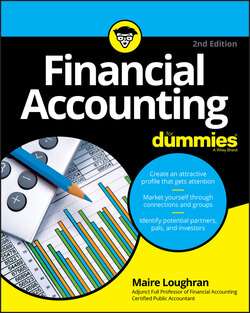Читать книгу Financial Accounting For Dummies - Maire Loughran - Страница 30
Following the accountant’s code of conduct
ОглавлениеIn a financial accounting class, you learn about different employment and licensing options available to financial accountants — a topic I discuss in Chapter 22. Financial accountants who are serious about their profession normally become certified public accountants (CPAs), which means they have to take a certain number of accounting and auditing classes, pass a four-part exam, and comply with any other requirements of their state’s licensing board.
Working as a financial accountant doesn’t require any special licensing, but a lack of licensing may limit your career options. Thinking that after graduation taking another test is a big no-no? As Chapter 22 points out, many interesting and exciting accounting careers do not require licensure.
CPAs have to abide by their state’s code of conduct and also follow the code of conduct established by the American Institute of Certified Public Accountants (AICPA) — the national professional organization for all CPAs. The AICPA is responsible for establishing accounting, auditing, and attestation standards for private companies in the United States, as well as for enforcing a code of professional conduct for its members. (Attestation involves generating reports on subjects that are the responsibility of another person or business.) In Chapter 4, I outline that code of conduct in detail.
But what if you’re a financial accountant who isn’t a CPA or a member of the AICPA? Do you still have to worry about abiding by a code of conduct? Of course, you do! Any profession lacking ethical behavior descends into chaos. Financial accountants must have high professional standards, a strict code of professional ethics, and a commitment to serving the public interest. They achieve these goals through their integrity, objectivity, and independence.
